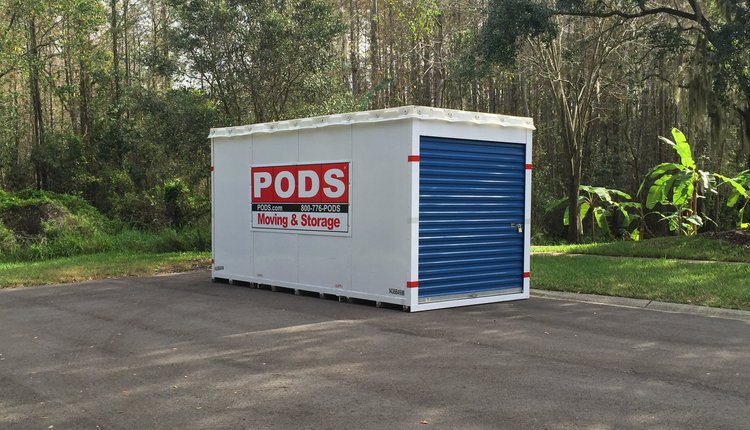In my years in the parcel business I had the thankless task of having to investigate a lot of billing complaints from my customers. One error that happens thousands of times a week in the parcel industry is that of carriers invoicing for shipments that a shipper never tenders to a carrier. Often this is a hard defect for a shipper to uncover, unless they have an audit process to identify when “billed-not shipped” happens.
In today’s high pressure customer satisfaction world, be it fulfillment or the simple mailroom environment that is trying to get everything prepared and out the door before the pick-up driver arrives, it is possible, and frankly probable, that a shipper is going to manifest a shipment that it never tenders to a carrier (for a myriad of reasons). Once you enter the data into the carriers system or on-line portal, and print that label, and close out your day, that data is going to create a record in the carriers system and that carrier is going to, most likely, bill you for that transaction.
EVEN IF YOU DID NOT GIVE THE PACKAGE TO THE DRIVER.
You gave the carrier your account number, and the name and address of the intended recipient and a weight, and you selected a level of service, and, well, the carriers system is going to say that you transmitted it, so you must have tendered it, and therefore they must be entitled for compensation for handling that shipment.
Let’s digress for a moment and talk about all that high tech scanning the carriers brag about. In an ideal world a package is scanned at the time of pick up. Then the package gets scanned when it comes into the origin terminal. Then it gets scanned when it’s sent outbound on a truck or a plane to a sort center. The package gets scanned when it goes through the sort center (often by automated equipment that captures weight and dimensions and sometimes even captures a picture of your shipping label) then the package shows up at a destination delivery terminal, and the package gets scanned when it enters that delivery point. Then the package is scanned when it’s loaded onto a delivery vehicle. Then the driver scans the package at the delivery address.
You would think that by now the carriers would acknowledge that if there is never any scan on a package that was transmitted to them, that they should at least suspend billing for that transaction until scans appear someplace in the network. If they never have any scan, then the assumption should be that they never received the transaction, and they should, therefore, not be entitled to be compensated for transporting a piece that they were never tendered.
I do know that most carriers have an audit process in place that captures a shippers number and if there are scans along the way they know what zip it was delivered to and in the hub they captured a weight and dimension (often they publish a default weight in the event they can’t populate that field while the package is in transit).
(Example: 5.2 When Air Waybills are produced by the Sender through any automated shipping device, any omission or incorrect entry on the Air Waybill concerning the weight or number of Packages will result in a billing based on FedEx's estimate of the number of Packages transported and either the dimensional weight at the time of billing or a standard default weight per Package estimate, as determined by FedEx and which will be available upon request.)
And they most certainly can and do bill shippers for packages which the carrier has scanning evidence that they transported your package but their billing system never received (or processed) your transmission of the shipment data.
Most parcel sales reps don’t understand their own billing system or what feeds the process, so trying to discuss and or negotiate with them about overbilling or default billing often is frustrating and unproductive. It’s important in negotiating with carriers that you know as much or more about your business as they do. You can use this information about this defect as a negotiation point to leverage something you want; in exchange for acknowledging that from time to time the carrier may bill you for transactions they never transport and agree to some defect tolerance level in the contract. You agree not to come after then for the overcharges for this as long as it’s within the tolerance. Its then incumbent upon you as a competent shipper to discipline your processing and voiding procedures.
Lastly, trust that if your customer service department gets a call from one of your customers and the recipient says that they never got the package that your system said you sent (and most order entry systems are going to be retaining the tracking number of that label you created) and you go back to the carrier to file a loss claim, there is the highest probability that they will say that “based on our absence of scanning events, you, Mister or Ms. shipper, never tendered that transaction to us and therefore your claim is denied”. End of story.
So, on the one hand the carriers are using scanning to make sure they get paid if you fail to transmit. They use the scanning records to verify they actually received a transaction before they pay out a claim. But don’t thrust that they will use that same scanning technology to suppress billing you until they have scanning evidence that you actually tendered a piece.
So what’s a shipper to do? First and most important is to make sure that your shipping staff understands the consequences of creating a shipping label and voiding a shipment, prior to end of day close out, if the label is destroyed or the package can’t or does not go out for any reason.
Second, you need to be comparing what went out the door, to what the carrier is billing you for. To me the best way to start is to look in the carrier provided files for shipments that lack POD (proof of delivery). This can all be data driven and not labor intensive.
Lastly you can and should use a parcel audit firm that is experienced and has processes and expertise in looking for this defect. This is extremely important is you have a high volume fulfillment process. There can be lots of opportunities to pay for shipments that you never tender to a carrier. I can recommend to you some of the best at this type of detective work.
In today’s high pressure customer satisfaction world, be it fulfillment or the simple mailroom environment that is trying to get everything prepared and out the door before the pick-up driver arrives, it is possible, and frankly probable, that a shipper is going to manifest a shipment that it never tenders to a carrier (for a myriad of reasons). Once you enter the data into the carriers system or on-line portal, and print that label, and close out your day, that data is going to create a record in the carriers system and that carrier is going to, most likely, bill you for that transaction.
EVEN IF YOU DID NOT GIVE THE PACKAGE TO THE DRIVER.
You gave the carrier your account number, and the name and address of the intended recipient and a weight, and you selected a level of service, and, well, the carriers system is going to say that you transmitted it, so you must have tendered it, and therefore they must be entitled for compensation for handling that shipment.
Let’s digress for a moment and talk about all that high tech scanning the carriers brag about. In an ideal world a package is scanned at the time of pick up. Then the package gets scanned when it comes into the origin terminal. Then it gets scanned when it’s sent outbound on a truck or a plane to a sort center. The package gets scanned when it goes through the sort center (often by automated equipment that captures weight and dimensions and sometimes even captures a picture of your shipping label) then the package shows up at a destination delivery terminal, and the package gets scanned when it enters that delivery point. Then the package is scanned when it’s loaded onto a delivery vehicle. Then the driver scans the package at the delivery address.
You would think that by now the carriers would acknowledge that if there is never any scan on a package that was transmitted to them, that they should at least suspend billing for that transaction until scans appear someplace in the network. If they never have any scan, then the assumption should be that they never received the transaction, and they should, therefore, not be entitled to be compensated for transporting a piece that they were never tendered.
I do know that most carriers have an audit process in place that captures a shippers number and if there are scans along the way they know what zip it was delivered to and in the hub they captured a weight and dimension (often they publish a default weight in the event they can’t populate that field while the package is in transit).
(Example: 5.2 When Air Waybills are produced by the Sender through any automated shipping device, any omission or incorrect entry on the Air Waybill concerning the weight or number of Packages will result in a billing based on FedEx's estimate of the number of Packages transported and either the dimensional weight at the time of billing or a standard default weight per Package estimate, as determined by FedEx and which will be available upon request.)
And they most certainly can and do bill shippers for packages which the carrier has scanning evidence that they transported your package but their billing system never received (or processed) your transmission of the shipment data.
Most parcel sales reps don’t understand their own billing system or what feeds the process, so trying to discuss and or negotiate with them about overbilling or default billing often is frustrating and unproductive. It’s important in negotiating with carriers that you know as much or more about your business as they do. You can use this information about this defect as a negotiation point to leverage something you want; in exchange for acknowledging that from time to time the carrier may bill you for transactions they never transport and agree to some defect tolerance level in the contract. You agree not to come after then for the overcharges for this as long as it’s within the tolerance. Its then incumbent upon you as a competent shipper to discipline your processing and voiding procedures.
Lastly, trust that if your customer service department gets a call from one of your customers and the recipient says that they never got the package that your system said you sent (and most order entry systems are going to be retaining the tracking number of that label you created) and you go back to the carrier to file a loss claim, there is the highest probability that they will say that “based on our absence of scanning events, you, Mister or Ms. shipper, never tendered that transaction to us and therefore your claim is denied”. End of story.
So, on the one hand the carriers are using scanning to make sure they get paid if you fail to transmit. They use the scanning records to verify they actually received a transaction before they pay out a claim. But don’t thrust that they will use that same scanning technology to suppress billing you until they have scanning evidence that you actually tendered a piece.
So what’s a shipper to do? First and most important is to make sure that your shipping staff understands the consequences of creating a shipping label and voiding a shipment, prior to end of day close out, if the label is destroyed or the package can’t or does not go out for any reason.
Second, you need to be comparing what went out the door, to what the carrier is billing you for. To me the best way to start is to look in the carrier provided files for shipments that lack POD (proof of delivery). This can all be data driven and not labor intensive.
Lastly you can and should use a parcel audit firm that is experienced and has processes and expertise in looking for this defect. This is extremely important is you have a high volume fulfillment process. There can be lots of opportunities to pay for shipments that you never tender to a carrier. I can recommend to you some of the best at this type of detective work.










